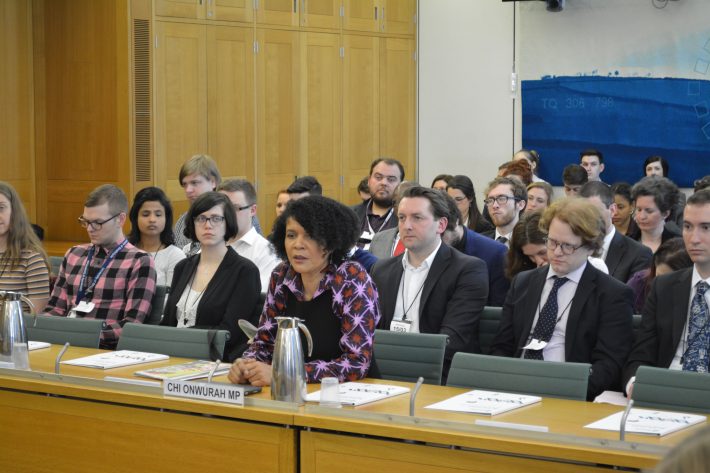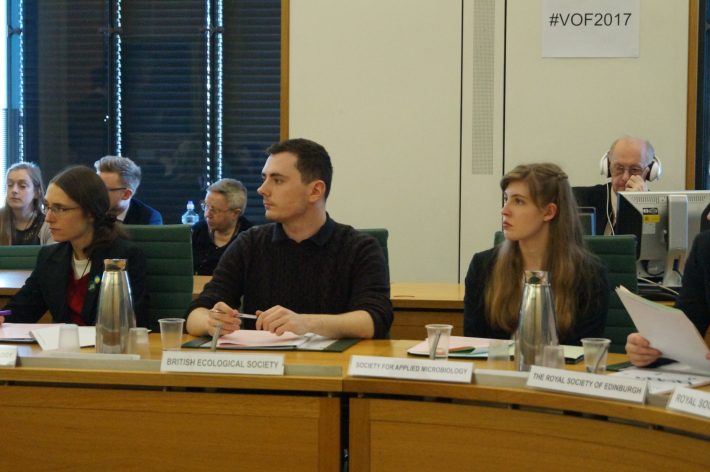A first foray into policy: Voice of the Future 2017
Daniel Leybourne shares his first experience of engaging with the world of policy at Voice of the Future, held on Wednesday 15 March 2017 at Portcullis House.

The Voice of the Future (VOF) event on 15 March was my first foray into engaging with policy and my first non-conference British Ecological Society activity. I had seen the event advertised on society websites and had read these several times, with ever increasing interest. However, it wasn’t until discussing the event with a friend that I decided to apply. One decisive factor in this was that I was growing more anxious and frustrated at what appeared to be the dwindling influence of science, evidence and common sense in government policy, especially since June 2016. I came to the conclusion that I could not pass on the opportunity to question Government Ministers, Shadow Ministers, the Chief Scientific Advisor and the Science and Technology Select Committee on these issues, and I opted to represent the BES as I believe the environment has the most at risk as the UK attempts to negotiate its way out of the European Union.
The VOF event began with registration and some ad-lib networking, before we took our seats in the committee room for a short briefing on the purpose of the event itself, the procedure to follow and other general bits of housekeeping which needed addressing. We were also (half-jokingly) warned that, unlike the government and Parliament representatives, we were not covered by parliamentary privilege and as such should refrain from saying anything too slanderous!
I was given the opportunity to represent the BES in the first session and to put a question to the Shadow Minster for Industrial Strategy, Science and Innovation – and coincidently my local MP from back home in Newcastle – Chi Onwurah MP, on what she thinks should be done to ensure that environmental regulation is protected after Brexit. To paraphrase Chi, there is no logical reason as to why post-Brexit UK law should not be able to at least maintain the current EU environmental regulations and improve on these where required to ensure that the UK environment remains protected.

The remaining sessions saw questions on a range of topics including how to encourage more women into STE(A)M subjects, how to tackle innumeracy in our education system and how emerging technologies should be regulated. One noteworthy response from the Chief Scientific Advisor, Sir Mark Walport, was that he sees the arts as an integral part of STEM – or as he preferred, “STEAM” – for the development of creative public engagement activities as well developing cutting-edge technologies with usable ergonomic interfaces.
Overall I would highly recommend any young scientist or engineer who has the opportunity to attend a similar event to do so. Not only did it enlighten me as a young scientist and answer questions and address doubts I had on how science can inform government policy, it also addressed my concerns on the role of science and technology in government in the aftermath of the infamous “this country is tired of experts” rhetoric. It was especially nice to see general agreement across the political spectrum – Labour, SNP and Conservative – when it came to the necessity of using scientific evidence to support government policy. The VOF event has definitely piqued my interest in policy. I’ve now signed up to the BES Scottish Policy Group and I intend to keep at least one metaphorical finger in the metaphorical policy pie.
Find out more about Voice of the Future
Like what we stand for?
Support our mission and help develop the next generation of ecologists by donating to the British Ecological Society.